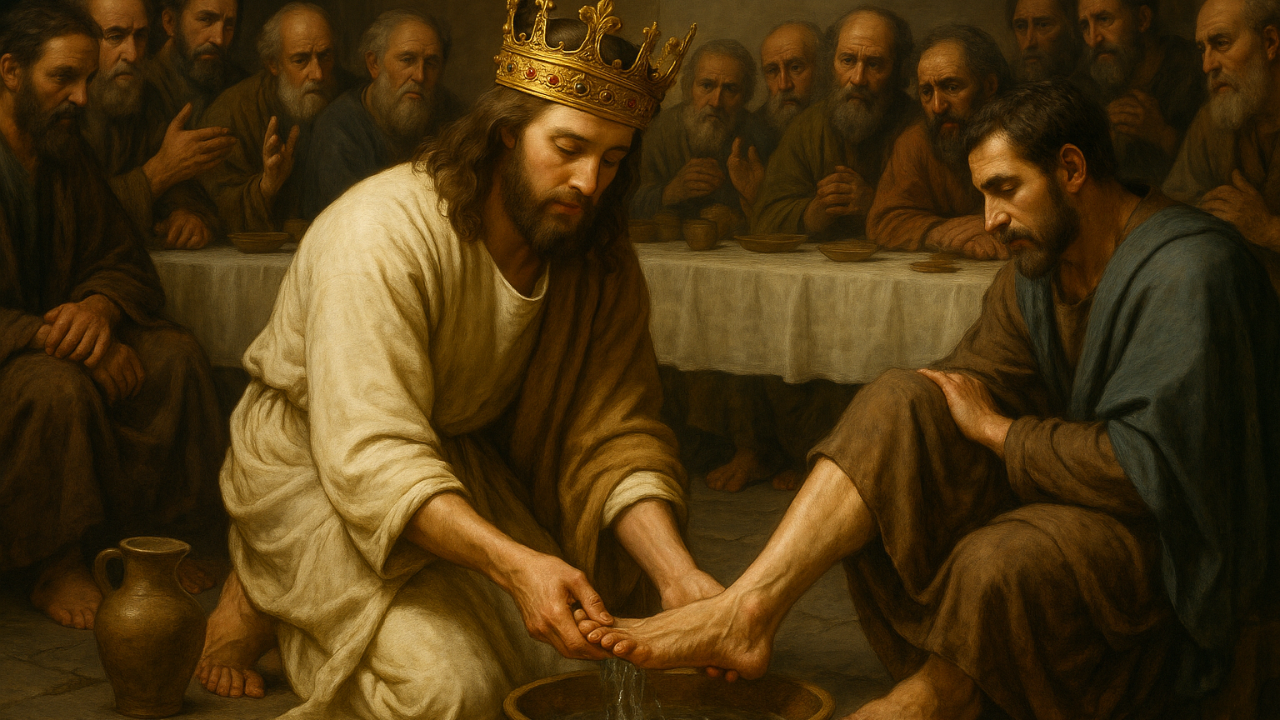Servant Leaders

In today’s world, sometimes both the word and the idea of leadership has been hijacked. It’s often not about responsibility. It’s about spotlight. Leadership is too often equated with the pursuit of power, the love of praise, and the inflation of ego. In other words, it’s not leadership—it’s theater. And much of what we’re seeing isn’t the kind of leadership that builds Zion. It’s the kind that builds Babel.
Everywhere you look, from global stages to small-town politics, the pattern is the same. Vladimir Putin’s thirst for conquest isn’t about protecting borders—it’s about legacy, empire, and fear. Justin Trudeau governed with the polished arrogance of someone who believes his moral superiority justifies every overreach. Donald Trump, for all his strengths, often seems driven more by personal vindication than principled leadership.
But it’s not just global politics. This same spirit infects school boards, HOA meetings, boardrooms, pulpits, and yes—even youth sports. We all know the little league coach who uses nine-year-olds as props to relive the varsity days that never were. It’s the same pattern—power as a substitute for purpose.
And yet, in all this noise and narcissism, there remains a higher standard—a truth about leadership that cuts through the fog. True leadership isn’t about how many people follow you. It’s about who you’re willing to serve. It isn’t measured by applause, followers, or polls, it’s measured by sacrifice. Real leadership requires dying to self. And that’s why so few choose it.
This higher vision of leadership is embodied perfectly in Jesus Christ. The Son of God, the Creator of the universe, came not to be served but to serve. Not to demand loyalty, but to wash feet. Not to build an earthly empire, but to offer an eternal kingdom. He didn’t arrive with military banners or PR campaigns. He was born in a manger, rode a donkey, and spent His ministry walking dusty roads with the outcasts and the poor. He healed the sick, lifted the sinner, and touched the untouchable. Not once did He act for applause.
After His miracles, He often said, “Tell no man.” Why? Because He wasn’t building a brand—He was fulfilling a mission. And when confronted by enemies, He didn’t crush them—He wept for them. He turned the other cheek, not out of weakness, but out of divine strength. The kind of strength that refuses to be corrupted by pride, power, or politics.
This is the pattern of the servant leader. This is the model that breaks the cycle of ego and builds the kingdom of God.
And we see this modeled in scripture not just by the Divine, but by mortals too. King Benjamin, the prophet-king and servant-king in the Book of Mormon, is one of the clearest mortal examples of Christlike leadership. He didn’t live off the labor of his people. He worked with his own hands. He didn’t demand loyalty from behind palace walls—he fought with his own sword to defend his people. He didn’t seek praise; he sought peace. And when he stood to speak, he didn’t exalt himself—he humbled himself.
His words are immortal: “When ye are in the service of your fellow beings ye are only in the service of your God” (Mosiah 2:17). That one sentence shatters the modern definition of leadership. And it sets the bar where it belongs—at the feet of Christ.
Contrast that with leaders obsessed with optics, addicted to control, and always ready with a camera crew but rarely present when it’s time to get their hands dirty. Whether it's a politician exploiting division for votes, a celebrity preaching morality while living in hypocrisy, or even religious figures trading doctrine for popularity, it’s all the same spirit.
Many so-called leaders speak of compassion but act out of self-interest. They make empty promises designed not to uplift but to distract. Their words are polished, but their motives are hollow. The gospel calls this “having a form of godliness, but denying the power thereof” (2 Timothy 3:5).
But we are not called to follow the world’s pattern. We are called to follow the Lord’s.
President Russell M. Nelson stands as a living witness of true servant leadership in our day. In a world obsessed with division, he preaches unity. In a culture drunk on anger, he calls for peace. Over and over, he reminds us that contention is of the devil, and that self-centeredness kills spiritual power. He doesn’t just warn—he invites. He invites us to become the “hands and feet of the Savior” in real, tangible ways.
That means ministering when it's inconvenient. Forgiving when it's hard. Leading without being seen. It means sacrificing our comfort to lift others from theirs.
Now, someone might say, “What difference can I make? The world is too far gone.” And they’re half right. The world is too far gone—if we expect to fix it through systems and slogans. But if we begin with the one thing we actually have control over—ourselves—the ripple effect is undeniable.
When a father leads his home in righteousness, that home begins to change. When families live centered on Christ, churches grow stronger. When congregations live the gospel with integrity, communities begin to transform. And when enough communities reflect the light of Christ, nations shift. That’s not theory. That’s doctrine. That’s history. That’s how Zion is built.
But it starts with one. It starts with you. With me. With ordinary disciples choosing such a responsibility.
We need leaders who will speak truth when it costs them. Who will serve when it hurts. Who will lead without applause. That is the pattern of Christ. That is the call of Christ-like leadership.
The world chases power. Let them. We should chase responsibility.
Righteous families, societies, and God’s kingdom aren’t built on ego, they are built on sacrifice.
And that means our mission is clear:
Less pride. More purpose.
Less power. More service.
Less self. More others.





